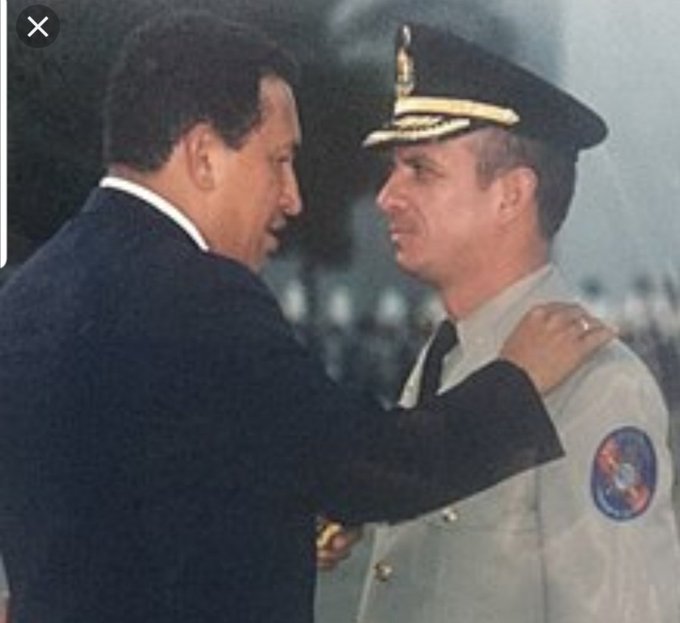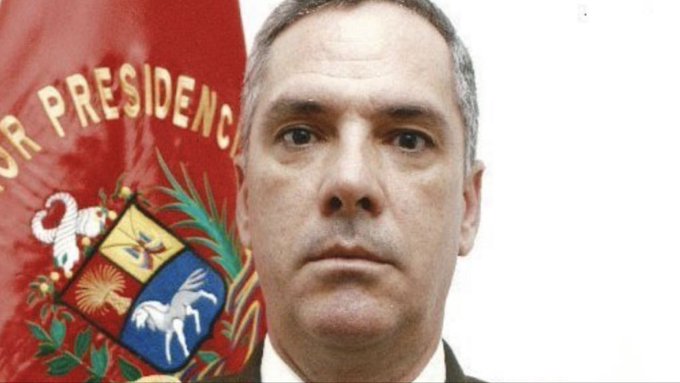13.04.2019
On April 12th, Venezuelan ex-spy chief Hugo Carvajal was arrested in Madrid by Spanish police on a US warrant for allegedly trafficking tons of cocaine.
He is also accused of having connections to the Revolutionary Armed Forces of Colombia (FARC), which is designated as a terrorist organization by the US.
“Hugo Carvajal was arrested in Madrid on the morning of this Friday #12abril.. Carvajal has two cases for drug offenses and ties with the terrorist group. #Farc He hired US lawyers to clarify his situation, there was no cooperation agreement.”
A spokeswoman with Spain’s National Court, which handles extradition cases, said that Carvajal would testify on April 13th before Judge Alejandro Abascal in Madrid.
Carvajal was an adviser to Venezuelan Leader Hugo Chavez and headed the security services. On March 21st, he became one of the more influential military figures to recognize US-Proclaimed President Juan Guaido as the legitimate Venezuelan leader.
He also called on Defense Minister Vladimir Padrino to topple maduro with the Armed Forces.
“The majority of the Armed Forces want to return the freedom to Venezuela, but they are kidnapped by this system of torture and terror, and when I said that the control is more iron than they imagine, it was serious, believe me, if we do not finish with the Cubans, the FAN will not be able to fulfill its duties,” he warned on his Twitter account.
Despite his opposition to the Maduro government, his arrested was condemned by Venezuelan President Nicolas Maduro.
He described the detention of the former intelligence director as an “ambush” and, in addition to ruling out that he has or has had any relationship with drug trafficking, reiterated that he is a “diplomat in functions of the Venezuelan State.”
The Venezuelan Supreme Court also claimed that Carvajal should be released, since he had immunity “because he is an active Venezuelan diplomatic official.”
Separately, at the opening of the joint World Bank and International Monetary Fund (IMF) spring meetings, IMF managing director Christine Lagarde said that it is up the fund’s members “to indicate which authority they are recognising diplomatically.”
On the side of the World Bank, newly-appointed WB Group President David Malpass said that the organization is preparing to become “deeply involved” in Venezuela, “but the situation is still troublesome on the ground.”
Malpass said that Venezuela is a “deep concern” for the World Bank, but that any decision to intervene in the country or recognise opposition leader Juan Guaido as Venezuela’s president would be left to the World Bank’s stakeholders.
The US, on its part is attempting to increase pressure on Venezuela.
On April 12th, the US Treasury announced sanctions on companies that transport Venezuelan oil to Cuba.
“We continue to target companies that transport Venezuelan oil to Cuba, as they are profiting while the Maduro regime pillages natural resources. Venezuela’s oil belongs to the Venezuelan people, and should not be used as a bargaining tool to prop up dictators and prolong oppression,” said Treasury Secretary Steven T. Mnuchin. “Maduro relies on the support he receives from the Cuban military and intelligence services to retain his hold on power because he does not have the support of the Venezuelan people.”
On his Latin America tour, US Secretary of State Mike Pompeo, while visiting Chile accused China of prolonging Venezuela’s crisis by financing Nicolas Maduro.
Pompeo said China is a major US trading partner, but that its “trade activities often are deeply connected to their national security mission, their technological goals, their desire to steal intellectual property, to have forced technology transfer, to engage in activity that is not economic.”
On April 10th, US Vice President Mike Pence once more said that the US would continue to “exert all diplomatic and economic pressure to bring about a peaceful transition to democracy in Venezuela. But all options are on the table.”
Pence also said that the US would push the UN to recognize Juan Guaido as the legitimate Venezuelan leader and revoke the credentials of the Venezuelan government.
“Up to this point, while other international bodies have acted, the United Nations and this Security Council have refused to act. But now that nations across this hemisphere have spoken, the time has come for the United Nations to recognize Interim President Juan Guaidó as the legitimate President of Venezuela and seat his representative in this body.This body should revoke the credentials of Venezuela’s representative to the United Nations, recognize Interim President Juan Guaidó, and seat the representative of the free Venezuelan government in this body without delay.”
In response, Venezuelan Ambassador to the UN Samuel Moncada accused the US and UK of benefiting from the physical and financial assets which the Bolivarian people held abroad and were illegally confiscated.
“Our refineries’ profits are being used to pay debts to Trump administration-friendly oil companies. His friends, who hold Venezuelan debt bonds, receive special licenses to collect profits from our people’s stolen money,” Moncada said, while also commenting on an alleged plan to indebt Venezuela for $70 billion.“One aspect of this mass destruction policy is looting and robbery of tens of billions, literally a robbery,” he said and warned that companies profiting from U.S. policies are using the stolen resources in dark financial transactions. “It is a plan where banks, insurance and ships are used… [as] weapons of mass destruction, although those who are responsible are not being brought to justice or suffering moral sanctions they deserve,” Ambassador Moncada said
MORE ON THE TOPIC:
- US SOUTHCOM Head Says Venezuela Military Intervention “Might Be Necessary” By End Of 2019
- US Actions In Venezuela In 2019 Repeat Scenario Of 2013 Video Game Made With DoD Consultant
The views expressed in this article are the sole responsibility of the author and do not necessarily reflect those of the Blog!







No comments:
Post a Comment